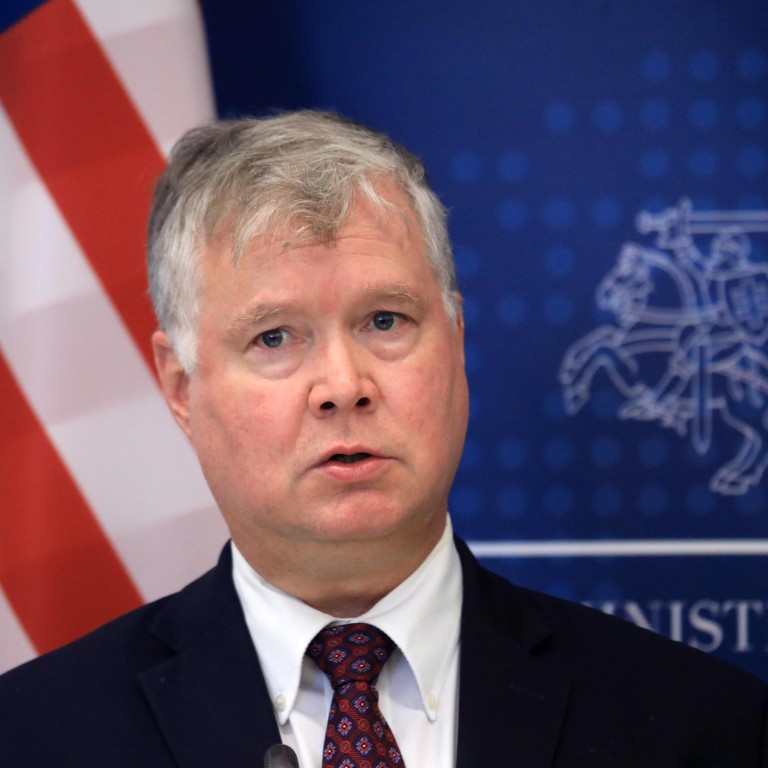
US diplomat Stephen Biegun says Washington keen to advance India’s interests, calling China ‘elephant in the room’
- Secretary of State Mike Pompeo had said China’s increasingly assertive actions across the region make it more critical than ever for the Quad to cooperate
- Washington has increasingly criticised Beijing over the coronavirus, trade, technology, Hong Kong, Taiwan and human rights
A top US envoy on Monday called China “an elephant in the room” and said Washington is keen to advance India’s interests across the Indo-Pacific region.
Deputy Secretary of State Stephen Biegun said the US was exploring ways to empower India without altering what he called New Delhi’s “strong and proud tradition of strategic autonomy.”
Biegun spoke in New Delhi at the opening session of the India-US Forum after his three-day visit to India kicked off on Monday.
“India has a strong and proud tradition of strategic autonomy, and we respect that. We do not seek to change India’s traditions,” he said. “Rather we want to explore how to empower them and India’s ability to defend its own sovereignty and democracy and to advance Indian interests, across the Indo-Pacific region.”
In that direction, Washington has increased its foreign military sales and intelligence sharing with India, the number two US diplomat said.
“But there is more that we can do, including strengthening India’s ability to defend itself and by promoting interoperability among our militaries,” he said.
Biegun cautioned about rising China in the region. “Of course, as we advance in this direction, there is an elephant in the room: China,” he said.
His visit follows a meeting last week between US Secretary of State Mike Pompeo and his counterparts of India, Japan and Australia in Tokyo, who together make up the four Indo-Pacific nations known as the Quad.
The group of the four nations is seen as a counterweight to China who experts say is flexing its military muscle in the South China Sea, East China Sea, Taiwan Straits and along its northern border with India.

Pompeo had said China’s increasingly assertive actions across the region make it more critical than ever for the Quad to cooperate and protect their partners and people from Chinese “exploitation, corruption and coercion.”
Biegun’s New Delhi visit also comes amid a recent flareup in military tensions between China and India over the disputed mountainous border in the Ladakh region.
Washington has also increasingly criticised Beijing over the coronavirus, trade, technology, Hong Kong, Taiwan and human rights.
China has denied allegations of covering up the pandemic, saying it acted quickly to provide information to the World Health Organisation and the world. It says the US is the biggest aggressor in the South China Sea.
Beijing also denies human rights violations in its handling of Hong Kong and minority Muslims in the Xinjiang region. It accuses Western nations of meddling in its internal affairs.
Biegun said that the partnership between the four Quad countries is driven by “shared interests, not binding obligations, and is not intended to be an exclusive grouping.”
“Any country that seeks a free and open Indo-Pacific and is willing to take steps to ensure that, should be welcome to work with us,”said Biegun.
Biegun is expected to lay the groundwork for the “2+2” dialogue during his visit to India between Pompeo and US Defence Secretary Mark Esper and their Indian counterparts External Affairs Minister Subrahmanyam Jaishankar and Defence Minister Rajnath Singh later this month.
Biegun’s remarks about respecting India’s strategic autonomy were seen as placating India’s concerns about forging direct strategic alliances in an attempt not to upset rising China. India is the only country among the Quad nations that shares borders with Beijing.

